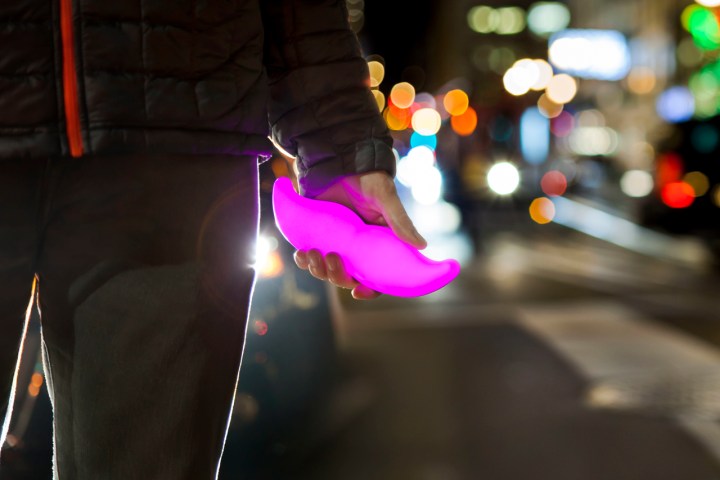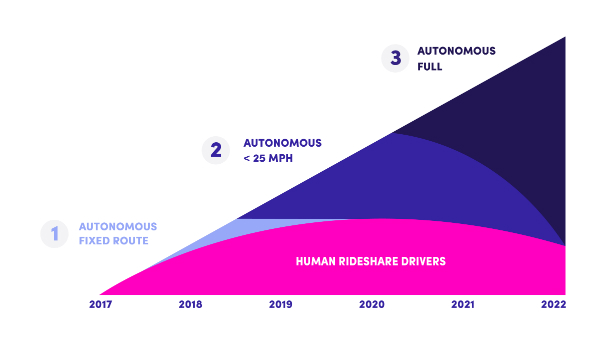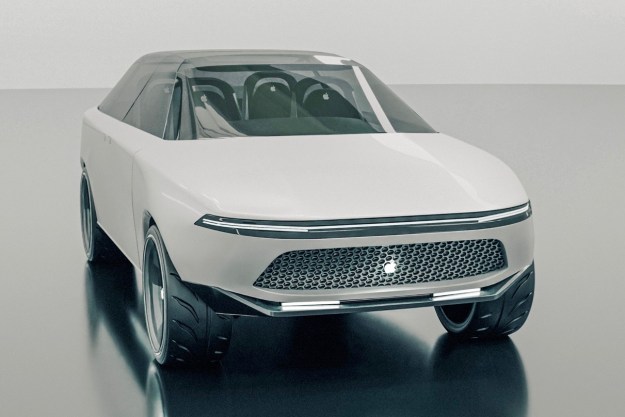
Zimmer’s visionary essay, “The Road Ahead,” isn’t focused on cars and car ownership, but rather on reclaiming our cities from cars. Zimmer writes of three transportation revolutions in the United States: railroads, assembly-line car manufacturing, and autonomous cars. In short, railroads created our cities, mass-assembled cars and car ownership made cars supreme in our cities, and subscription-based networks of autonomous cars will let our cities focus on people again.
Related: If Uber and Lyft switch to self-driving cars, what about the drivers?
The network of railroad tracks, the first revolution, determined where many cities and town were located. Mass-produced automobiles literally drove the second revolution and changed our cities drastically.
For our cities, Zimmer writes, “… car ownership started a vicious cycle: as more cars filled the streets, more roads had to be built to accommodate them. This second transportation revolution caused communities to spread farther and farther apart, which made having constant access to a car increasingly necessary — resulting in even more cars that needed even more space. In the process, our cities were dramatically reshaped to favor cars over communities.”
Zimmer then asks us to, “… imagine for a minute, what our world could look like if we found a way to take most of these cars off the road. It would be a world with less traffic and less pollution. A world where we need less parking — where streets can be narrowed and sidewalks widened. It’s a world where we can construct new housing and small businesses on parking lots across the country — or turn them into green spaces and parks. That’s a world built around people, not cars.”
Zimmer sees this vision of people-centric cities made possible with autonomous cars.
“Once this happens — once autonomous networks provide better service at a lower cost — our country will pass a tipping point. And by 2025, owning a car will go the way of the DVD,” Zimmer wrote. “Until then, over the next 5 to 10 years there will be both driver and driverless cars on the road, which we call a hybrid network.”
Zimmer cites the average annual, individual car ownership cost today of $9,000 for car payments, insurance, maintenance, fuel, parking, and registration. He then suggests mileage subscription plans for shared cars, with or without drivers, as a hassle-free solution to provide the transportation freedom we seek.
Along the way to bricking the concept of vehicle ownership for most people by 2025, Zimmer sees the beginning of self-driving rideshare cars in 2017 on fixed routes. Next will be open-route applications in low-speed areas, under 25 mph. Zimmer’s vision doesn’t include autonomous cars in all areas at all speeds until 2020, but by then the majority of rides overall will be in driverless cars, he believes.
Zimmer does not think the need for human rideshare drivers will ever go away. He believes that as the added freedom of mobility provided by autonomous vehicles influences people to stop owning cars, more human Lyft drivers than ever will be needed for trips where self-driving cars aren’t the right solution.
Editors' Recommendations
- Porsche’s most powerful production car is an EV
- Cruise autonomous vehicle drives over woman just after she was hit by another car
- An autonomous car in San Francisco got stuck in wet concrete
- Waymo doubles service area for its robotaxi rides
- Autonomous cars confused by San Francisco’s fog





